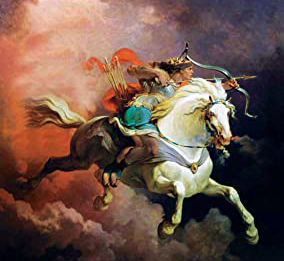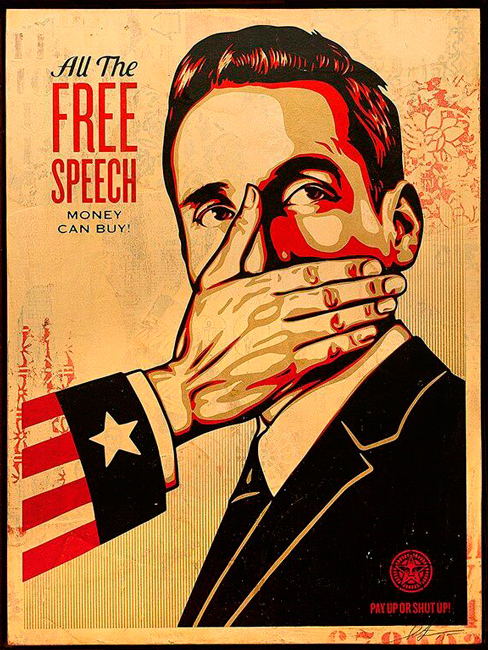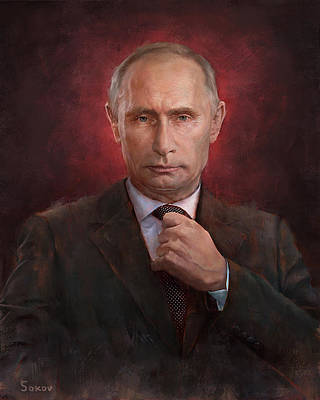In the previous post today, Savitri said something central to understanding our abysmal differences with the American movement called white nationalism:
 Only Kalki, the last of the avatars of Vishnu, or by whatever name men who are attached to the various expressions of the one Tradition like to call him, is assured of success in a battle against the tide of Time. And this success will then be total, consisting of nothing less than that absolute reversal of values that characterises the end of one world and the birth of an unknown and long unthinkable world. Accompanied by unprecedented destruction, it will signify the end of the present cycle: the end of the Dark Age, from which nothing good could come; the end of this cursed humanity, and the Appearance of conditions of life and means of expression similar to those of every Golden Age.
Only Kalki, the last of the avatars of Vishnu, or by whatever name men who are attached to the various expressions of the one Tradition like to call him, is assured of success in a battle against the tide of Time. And this success will then be total, consisting of nothing less than that absolute reversal of values that characterises the end of one world and the birth of an unknown and long unthinkable world. Accompanied by unprecedented destruction, it will signify the end of the present cycle: the end of the Dark Age, from which nothing good could come; the end of this cursed humanity, and the Appearance of conditions of life and means of expression similar to those of every Golden Age.
One way of showing this abysmal difference can be heard in the solo podcast that Greg Johnson uploaded today on his webzine along with other articles on the war in Ukraine. As a good neochristian, i.e., a secular man who unconsciously subscribes Christian ethics, Johnson is concerned about the welfare, suffering and fate of Ukrainians. Compare it with my recent quotable quote: ‘They predicted the end of History after the collapse of the USSR? We wish to speed its return: thunderous, bellicose, and archaic’. In the original piece by Guillaume Faye about the return of History, he proceeds: ‘The twenty-first century will be placed under the double sign of Mars, the god of war, and of Hephaestus, the god who forges swords, the master of technology and the chthonic fires’.
Although we don’t like Putin, Mexico is like Ukraine to the United States and, from this point of view, Mexico isn’t really a free country but a codependent country. The situation with Ukraine and NATO would be like Mexico entering into a formal alliance with Russia or China. It would swiftly produce pretty much the same response from the US as Putin’s war in Ukraine. The MSM has gone hysterical throughout the entire West because they can’t see something so obvious (China and India support Putin’s war and also Iran and Syria).
Cable television—including all Fox News programs excepting Tucker—, and now Facebook and Twitter, are nothing but US state propaganda. In 1999 I was living in Manchester when Russia passively watched as Bill Clinton dismembered and bombed Serbia, a nation under the protection of Russia, while the Anglo-American media, oh hypocrites, sided Clinton and Tony Blair.
But again: as a priest of the same religion of Savitri, I dislike what Putin represents, and perhaps the best way to explain this would be to criticise the American racist who came closest to Kalki’s spirit: William Pierce. In his essay ‘What The Turner Diaries is all about’ Pierce said:
And as I said earlier, it’s not a plan or a blueprint. The details—the bombings and assassinations, the nuclear war and its aftermath—are all fiction. But the struggle for dominance between the two sets of values portrayed in the book is not fiction. That’s real. And it is in this regard that Earl Turner’s Organization is the model for the National Alliance.
Problem is that Earl Turner’s Organisation was revolutionary and the National Alliance is only reactionary. Did Pierce cuck years after he wrote his great novel?
On this site I have been using the metaphor of crossing the psychological Rubicon in the sense of transvaluing all Christian values to pre-Christian values; that is, repudiating the entire Christian history of the West. But the magnet exerted by Christian ethics is such that even the great Pierce took steps back when he was reaching the end of the other shore; for example, by breaking away from an American Nazi Party and forming an organisation of his own (as we saw in instalment 8 of the history of American National Socialism).
But the late Pierce is not a contemporary influence on American racialism. Johnson’s pity for Ukrainians can only be understood as part of the Christian ethical injunctions in secularised form shared by almost all whites today: normies, racialists and neo-Nazis alike. Unlike Pierce’s paragraph above and Johnson’s podcast today, a priest of holy words longs for precisely that nuclear war and its aftermath that would destroy, once and for all, all reminiscence of Gospel ethics among whites.
Only Kalki saves, and it is a splendid irony that I will soon receive the book Savitri was talking about in my other post today, published by Greg Johnson’s press.
 ‘RT is now subject to censorship in many western countries because it tells the Russian side of the Ukrainian crisis story’ (watch the 2-minute clip here).
‘RT is now subject to censorship in many western countries because it tells the Russian side of the Ukrainian crisis story’ (watch the 2-minute clip here).
